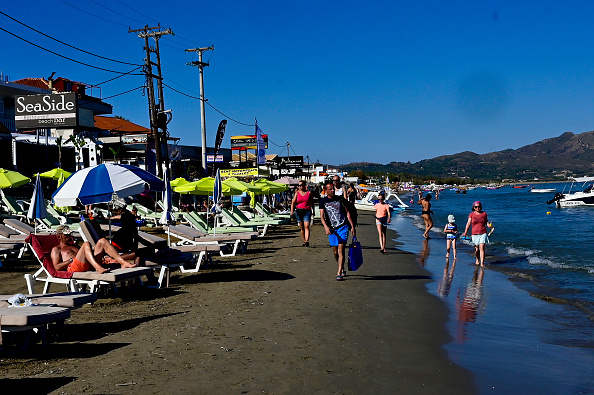Explainer: On the bad British tourist

We all have long been acquainted with the concept of the bad British tourist. And alas, it’s not only a concept: it’s very much a reality. If you’re from or have been travelling around the Mediterranean, you’ll have encountered the old trope: big groups of British lads getting sunburnt in the day and rowdy in the evenings.
Most recently, I spoke to an Italian tattoo artist who proudly said she spends six months of the year in Ibiza because there’s always some drunk Brit wanting to get a tattoo at 3 am. “It’s good money, but it gets tiring after a while”, she said laughing.
Now, it seems the targeted islands are rebelling. The leader of Lanzarote came out this week to say she wants to fight mass tourism on her island – especially when it comes to British tourists with a low budget. Ideally, the head of the local government would want to see more “higher-quality” German tourists instead.
Having been to Lanzarote myself, I can see where she’s coming from. The island is a paradise for surfers and climbers; the strong wind makes it a place less for sunbathers and more for hikers. Yet the main touristy town, Corralejo, lives off trashy bars that play awful music. The next morning, there’s always trash everywhere. Needless to say, the Brits love it.
Lanzarote is not the only place where local politicians have complained about this undisciplined style of tourism. Magaluf in Mallorca – possibly the favourite destination of any British person under 20 years old – has tried to reduce the party scene for a while, in a bid to attract more sustainable tourism. Arguably, there are still too many teenagers vomiting on its streets for Magaluf to claim success.
British tourists, however, are curious animals, widening their gaze well beyond the Mediterranean. Having seen a party bus carrying young British men – in tank tops – from one bar to another in a fairly remote seaside town in Thailand, I can confidently say the British tourist can be found all over the globe.
Jokes aside, there is definitely a general trend, in tourist locations, to change the way the tourism industry works in order to make it more sustainable – one that doesn’t pollute the local environment and doesn’t fuel crime or drunk fights. In this spirit, Amsterdam is trying to “clean up” tourism by limiting activities that involve drugs, alcohol and sex. Local politicians want to prevent nuisance and overcrowding.
Of course, tourists of all kinds – British included – heavily support these places’ local economies. The mayors of tourist towns love to complain about the visitors, but deep down know their economy relies on them. So it’s all good to poke fun at rowdy Brits – who by the way, are often well aware of their behaviour and ready to take a joke – but Lanzarote’s politicians should be careful what they wish for: no one wants to go on holiday where they don’t feel welcome.